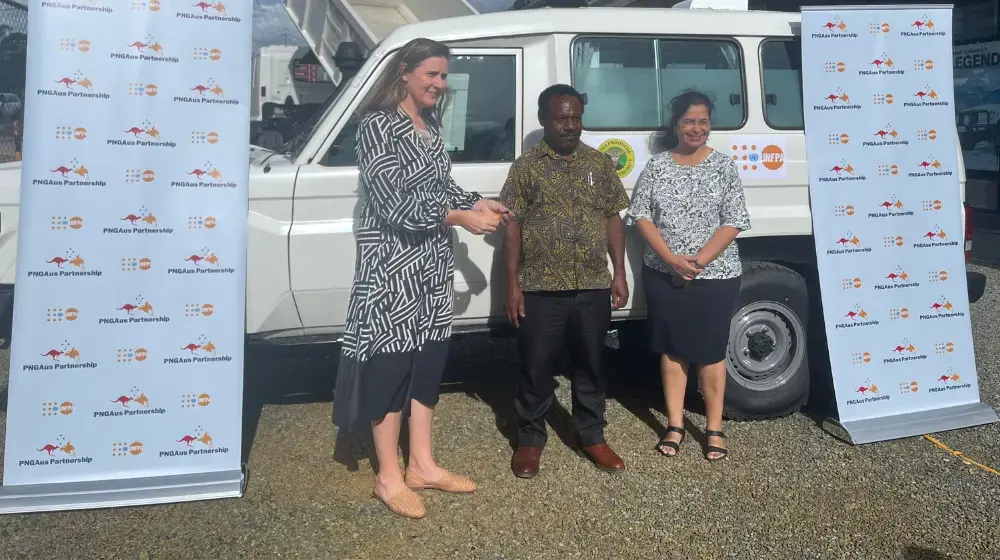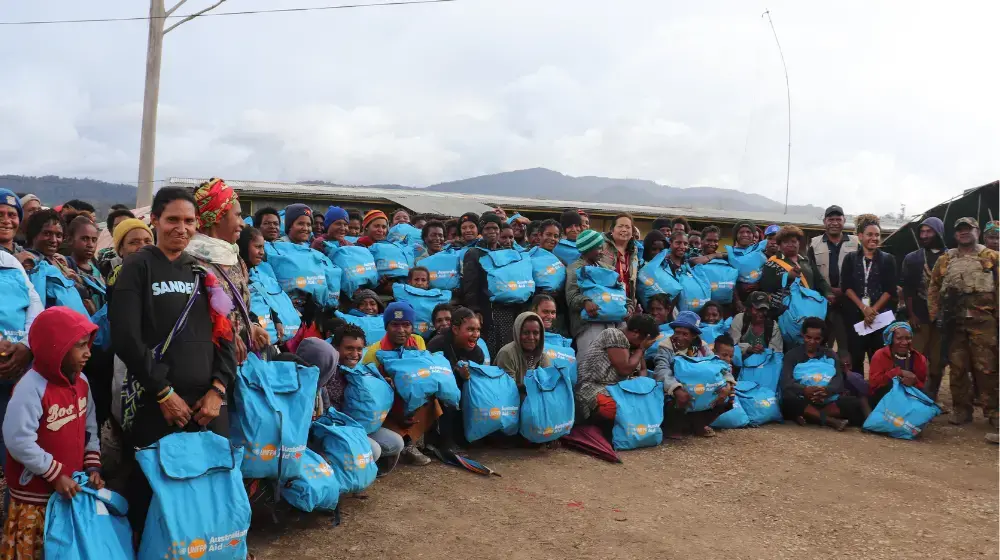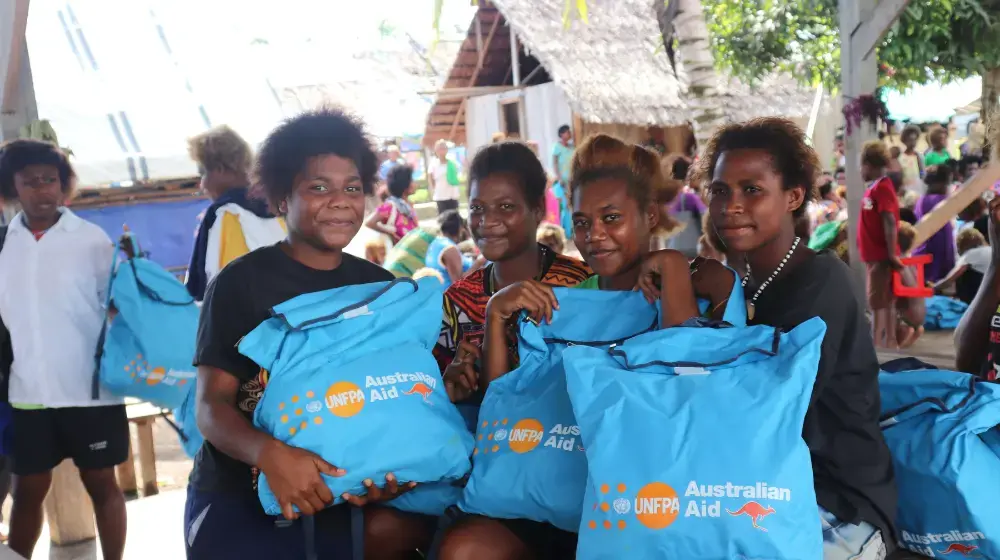There is a huge tribal fight happening in the Enga Province of Papua New Guinea. More than 7 tribes are involved in this fight. Vehicles have stopped moving through the main highway and women and children are being displaced as their villages are burnt to the ground.
The life they have always known has gone down in flames.
In this very hostile situation, Mr. Franklin Kunjip, a humanitarian frontline worker, finds himself traveling in a local Public Motor Vehicle as he makes his way from Mendi, in the Southern Highlands, to Wabag, Enga Province, to complete a humanitarian mission he helped start a few months earlier.
“I had already set up one safe space tent for displaced women and girls in Laiagam District,” said Franklin. “The only two tents left to be set up are in Porgera and Ambum-Kompiam Districts. These three districts are still severely affected by the election-related violence in the province.”
In the lead-up to the National General Elections 2022, violence erupted in Enga Province. That fighting is still ongoing more than a year later.
35-year-old Franklin has been working closely with the United Nations Population Fund in the country since 2018 through UNFPA’s implementing partner, the Catholic Diocese of Mendi.
“Through this partnership, I have worked in the space of gender-based violence and referral pathway programs, supporting survivors to access assistance,” shared Franklin. “I have also facilitated soft skills training, youth employment and leadership programs, peacebuilding, and especially, humanitarian support,” Franklin shared.
“All these I implement in two provinces, Southern Highlands and Hela.”
Through the work with UNFPA, the Catholic Diocese of Mendi has begun a Youth Center that currently supports nine students to upgrade their marks to help them further their education and apply to colleges.
“This program is fully functional and managed by the youths in the community. There are two trained teachers who run the program. The 9 students have successfully completed their first module of studies.”
The support to UNFPA’s USAID-funded humanitarian response to the election-related violence in Laiagam, Progera, and Ambum-Kompiam is the first time Franklin has worked in Enga Province. Having successfully set up the safe space tent in Laiagam, he has moved on to Porgera District to continue setting up the second tent. These spaces will provide basic shelter and support for displaced women and children escaping fighting.
“Despite the volatile situation in the province and knowing also that my life is at risk in situations like this, I also know that someone has to do the work. I put my hand up to this work and I must ensure that I perform to the best of my ability.”
Franklin also shared the expectations that lie within the communities that he works in.
“These communities usually have higher expectations from frontline workers like me,” he shares. “But I face this challenge by identifying and understanding their motive and just giving them more time to understand the program and how the outcome can benefit the community in the long run.”
“I love being a humanitarian worker in the field because I am able to help those who are vulnerable and that are deprived of essential services because of an unforeseen crisis, in this case, tribal fights and election-related violence.”
Mr. Kunjip has set up successfully the safe space in Porgera and now awaits clearance to move into the final district, Ambum-Kompiam.





